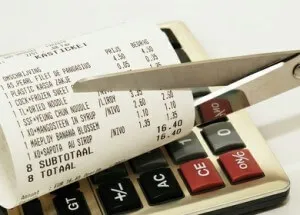- Share on Facebook61
- Share on Pinterest
- Share on Twitter
The manufacturers of boxed, canned and packaged foods would like us to believe that they have the best solution to the rising price of groceries. They promise quick meals on a budget, dinners on a dime and the answer to every busy family’s nutritional needs. For the most part, these slogans are empty promises coined by marketing experts who know just what to say to bait the hook for the big catch.
It is easy to get suckered into these campaigns, they inundate the television and radio, newspapers, magazines and billboards. We are virtually surrounded by fast and processed food hype; we don’t even have to be consciously paying attention to it and it registers in our brain. When was the last time you saw a billboard with a big red apple on it and the words “eat simply”, or a television commercial for raw honey, or kale? For the most part, if it can’t be packaged or preserved in some way, very little money is spent promoting it. Contrary to what you may think, it is possible to eat well without breaking the bank.
Plan Your Meals
 There is nothing bad to be said for planning. Have you ever returned from the grocery store with a huge bill and nothing to eat? It happens if you do not plan. Make a list of ten or so healthy meals that you enjoy and make a grocery list for each meal. If you write your meals on index cards, summarize the grocery list on the back so that you can see what you need in a glance. Prepare a weekly meal planner so that everyone in the house knows what dinner will be on any given night. While it may not be possible to stick to this plan 100% of the time, it provides a great guideline. Do the same with breakfast and lunch meals, so that when you go shopping you have a pretty rigid list to stick to. Disorganization prompts impulse buying, which results in inflated grocery bills and a lot of unhealthy food that you don’t really need.
There is nothing bad to be said for planning. Have you ever returned from the grocery store with a huge bill and nothing to eat? It happens if you do not plan. Make a list of ten or so healthy meals that you enjoy and make a grocery list for each meal. If you write your meals on index cards, summarize the grocery list on the back so that you can see what you need in a glance. Prepare a weekly meal planner so that everyone in the house knows what dinner will be on any given night. While it may not be possible to stick to this plan 100% of the time, it provides a great guideline. Do the same with breakfast and lunch meals, so that when you go shopping you have a pretty rigid list to stick to. Disorganization prompts impulse buying, which results in inflated grocery bills and a lot of unhealthy food that you don’t really need.
Learn to Cook from Scratch
A return to the way that our ancestors cooked would do wonders for not only our waistline but also our pocketbook. Americans throw away enough food each day to feed millions of hungry people all over the world. Cooking from scratch, using more and wasting less, offers an opportunity for us to reconnect with our food in new and exciting ways while saving money. For instance, learn how to use a whole chicken. You can make a delicious broth after you have enjoyed the meat. Choose an organic chicken and your broth will taste wonderful and be free of preservatives. A great resource for using all of your food is the book Nourishing Traditions by Sally Fallon and Mary Enig. This book teaches you how to cook healthy and nutrient dense meals from scratch, leaving little if any food waste.
Buy Local
Get acquainted with the farmers in your community and visit farmers markets and vendors for as much of your food as possible. Seek out growers of local organic produce, grass fed beef, free range chickens and eggs, honey and even raw milk if it is legal in your area. Buying local has many advantages over the supermarket. Shaking the hand of the one that feeds you builds relationships, trust and respect. You need to know where your food is coming from, and there is no better feeling than knowing that your produce was grown with tender loving care and attention to preserving as much nutritional value as possible. Many communities offer food co-ops where you can either go pick up your food at the farm or at a set location each week. Find places where you can pick berries, oranges or other food that may be available in your area. Buy fresh and in season and can, dry or freeze food to last the entire season through.
-The Alternative Daily
- Share on Facebook61
- Share on Pinterest
- Share on Twitter

